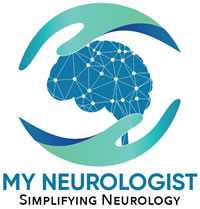Do women have more epilepsy or more seizures than men?
Epilepsy is one of the most common neurological problems in the world. It is a bit more common in men than women.
Do women with epilepsy suffer more than men?
Compared to men, women with epilepsy have more complex issues to deal with due to monthly hormonal changes, and issues related to pregnancy, childbirth, and breastfeeding.
Do women need different types of testing for epilepsy?
In terms of diagnosis, there is not much difference in testing protocol. But in terms of managing seizures and epilepsy, some tests might be needed, such as more blood tests during pregnancy.
What is catamenial epilepsy?
Some women with epilepsy have more frequent or break-through seizures at certain time of menstrual cycle, when there is sudden change in hormone (estrogen and progesterone) levels. This is called catamenial or menstrual epilepsy. In general, rising levels of estrogen may induce more seizures, while progesterone is protective against seizures.
How is catamenial epilepsy treated?
Following measures can help:
- Increasing the dose of seizure medicine that patient is already taking.
- An additional medicine taken for a few days every month, around the time when seizures occur. Some of the choices for the additional medicine to consider are progesterone, acetazolamide, or clobazam.
Does taking hormone contraception increase risk of seizures?
In patients with epilepsy, estrogen containing hormone contraception may increase risk of seizures by manifolds.
Do women with epilepsy have more reproductive disorders?
Yes, women with epilepsy are at risk of multiple reproductive disorders more than in general population. Some of those problems are the result of seizures, such as menstrual disorders, polycystic ovarian syndrome, infertility, and decreased libido. Many others are due to the medicines taken for seizures, such as infertility, thyroid dysfunction, decrease libido, weight gain, higher testosterone concentration, and thinning of bones. Some medicines may cause more trouble than others, for example, carbamazepine, phenytoin, and valproic acid may cause more trouble, while lamotrigine and levetiracetam not as much.
Can a woman with epilepsy have safe pregnancy?
Yes, most of them do.
Do women get more seizures during pregnancy?
Most do not, while some do. It is better to evaluate your situation with the neurologist beforehand.
What precautions should a woman with epilepsy take during pregnancy?
Pregnancy creates multiple complex issues, but they can be managed if understood and planned well. Following are some recommendations:
- Have a planned pregnancy, and discuss it with your physician beforehand. I usually say that discuss this issue before you even have intercourse. This is because for some issues, it might be too late to intervene once you know you are pregnant.
- Medicines for seizures can be adjusted or changed, but based upon an individual patient’s risk profile, may not be completely stopped. In general, it is not recommended to stop the medicine, as there may be more risk from having a seizure than the risk associated with taking a medicine. Have this discussion with your physician.
- There is no known completely safe medicine during pregnancy, but some are more harmful than others. The idea is to pick up the least harmful regimen of medicine or mode of treatment.
- Usually, it is not necessary to have blood level of seizure medicines on routine basis, but during pregnancy, depending upon the medicine, it may be useful. I try to maintain the least effective dose, as the risk of problems increases with higher dose, or more specifically with higher levels.
- Utilize all non-medicinal measures to avoid seizures. Please read the article on seizure disorder on this site to read further details.
- Consider enrolling in a pregnancy with epilepsy registry, which helps to figure out safer practices during pregnancy. To enroll in North American Antiepileptic Drug Pregnancy Registry, call 1-888-233-2334. More information can be obtained at www.aedpregnancyregistry.org.
- Avoid natural supplements and herbal products, unless cleared by your doctor. Not every natural and herbal product is safe in pregnancy.
- Take at least 0.4mg folic acid daily. May also take 1mg daily if taking some medicines like valproic acid, carbamazepine, oxcarbazepine, phenobarbital, phenytoin, or primidone. It is not clear if any higher dose of folic acid is beneficial or even harmful.
Do I need extra dose of seizure medicine at labor?
Not necessarily. It depends upon a patient’s history.
Does having epilepsy means that I have to chose a particular type of labor?
Not necessarily. Having epilepsy does not mean that a patient cannot have natural and normal vaginal delivery. Choice of labor is based upon other factors and decided by you and your obstetrician, based upon your particular situation and preference.
Does having epilepsy carry more risk to the child?
The risk to the child, associated with epilepsy treated with seizure medicine, is slightly more than a person without epilepsy and not taking seizure medicine. The level of risk varies based upon the type of medicine(s). Having seizures during pregnancy increases risk of preterm birth, low-birth weight, and smaller new born. The risk can be even higher depending type of seizures, e.g., grand mal seizures. It is more important to control seizures during pregnancy than avoiding side effects of seizure meds.
What is the risk of birth defects from epilepsy?
Women with epilepsy have 2-3 times higher chances of having a newborn with birth defect. The cause may be the epilepsy but also the medicine(s) taken for seizure control. It is important to understand that, due to ethical concerns, formal long-term drug safety studies in pregnancy have not been performed. Instead, our knowledge about this subject is based upon decades of experience using these medicines. In general, some medicines see to carry more risk of birth defects, and are best stopped and avoided. As stated above, there is no known completely safe medicine during pregnancy. The following list provides some common medicines and their overall risk to cause birth defect:
- Valproic acid (8.9%)
- Phenobarbital (5.9%)
- Topiramate (4.4%)
- Carbamazepine (3.0%)
- Pnenytoin (2.8%)
- Lamotrigine (2.1%)
- Levetiracetam (2.0%)
Do I need to shut off the Vagal Nerve Stimulator (VNS) during pregnancy?
No. There is no evidence that VNS is harmful to the mother or the child. It can be a useful safe method to help control seizures.
Does my unborn child also get a seizure if I do?
There is no logical reason, or any evidence, that the unborn child may go into a seizure if the mother has one. But, there can be other ways an unborn child can be harmed with a seizure or a convulsion.
Is it safe to breastfeed my child if I am taking seizure medicine(s)?
It depends. Some drugs may be safe (with no definite reported risk), and some may not be. In general, breastfeeding is encouraged and strongly recommended, as it has multiple benefits to the baby, and also to the mother. Though all seizure medicines are secreted in the milk, the exposure through breast milk is relatively less than the exposure before birth through placenta. Some medicines, like clonazepam or clobazam might carry more risk to the child, and not recommended while breast-feeding. For other meds, the risk is smaller. Please discuss your particular situation with your doctor.
Do epilepsy medicine(s) affect the contraception pill I am taking?
Some can, and they can make the hormone pill somewhat less effective. Overall the failure rate of contraception pill in general population is about 1%, but in epilepsy it is 2-3 times higher. Discuss this issue frankly with your doctor. It may be better to opt for a different pill or a different mode of contraception. Following list can help to make a decision:
Meds known to interfere with hormone contraception: Phenytoin, phenobarbital, carbamazepine, oxcarbazepine, eslicarbazepine, and primidone.
Meds known to interfere with hormone if used in high doses: Topiramate, perampanel, and felbamate.
Meds seem not to interfere with hormone contraception: Levetiracetam, lamotrigine, gabapentin, pregabilin, zonisamide, tiagabine, clonazepam, ethosuximide, valproic acid, vigabatrin, and lacosamide.
What is the best form of contraception for women with epilepsy?
Better option is a type of IUD, either copper one or hormone impregnated one. If that is not an option, may be a hormone contraception and barrier method (condom) around the time of ovulation. If taking a pill, consider the one with lower dose of estrogen. If using an injection hormone method, consider having the injection a few days earlier than when due.
Do women with epilepsy have more seizures during menopause?
One of the first hormonal changes around menopause is decreasing level of progesterone, while level of estrogen stays the same, which increases chances of having a seizure. This situation continues until menopause is completely over. During the phase of pre-menopause and menopause, the dose of seizure medicine can be slightly increased to provide better coverage for breakthrough seizures.
Does hormone replacement therapy safe in patients with epilepsy?
Estrogen containing hormone replacement therapy for hot flashes and other menopause symptoms increases risk of seizures and breast cancer. As much as possible, it is avoided. If it has to be used, formulation with minimum dose of estrogen is preferred.
Do women with epilepsy have more bone fractures?
People with epilepsy, both men and women, have 2-6 times more fractures than general population. This risk is even more for woman than men.
Do seizures medicines cause bone thinning, and bone fracture?
Certain seizure medicines are particularly known to cause bone thinning that may lead to bone fracture. This effect of medicine varies with different medicines, and can be classified as follows:
Probable: Phenytoin, phenobarbital, and primidone.
Possible: Benzodiazepines, carbamazepine, gabapentin, oxcarbazepine, valproic acid, zonisamide
Probably not: Lamotrigine, levetiracetam, topiramate.
Patients with epilepsy, especially who are taking the medicines in the “probable” list, should have calcium and vitamin D levels, and periodic bone density test.
Where can I get more information about epilepsy, and epilepsy in women?
American Society of Obstetrics and Gynecology


Leave a Reply
Your email is safe with us.
You must be logged in to post a comment.